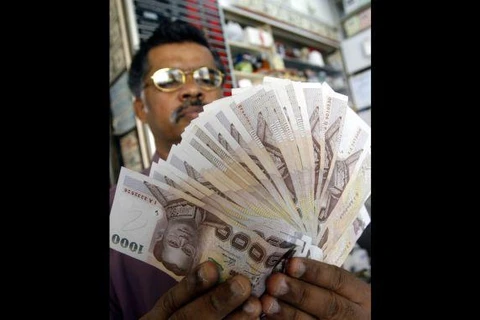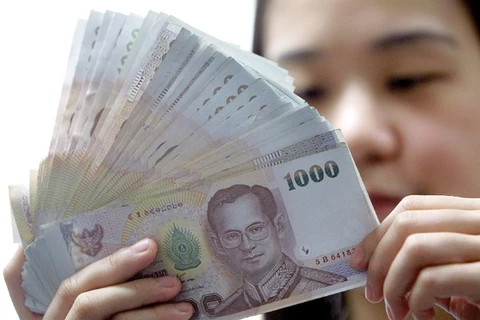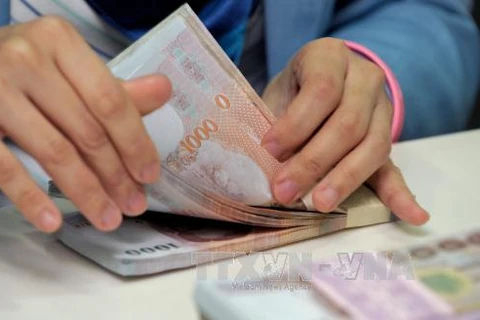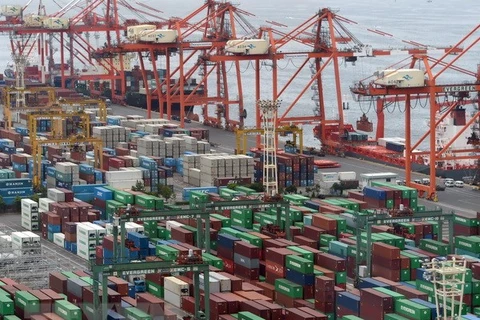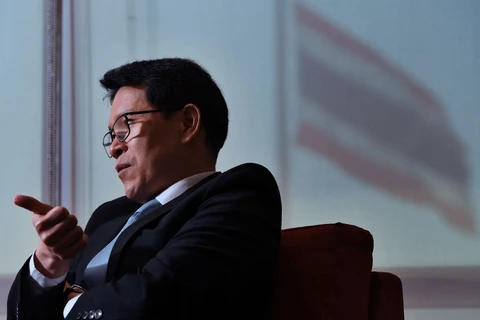 The Thai baht has risen steadily against the dollar recently, outperforming regional peers and sparking worries that the country's exports would become less competitive. (Source: Reuters)
The Thai baht has risen steadily against the dollar recently, outperforming regional peers and sparking worries that the country's exports would become less competitive. (Source: Reuters)
Bangkok (VNA) - The Thai baht has staged a strong recovery against US dollar after suffering a brief sell-off earlier this year, but the Thai Government is increasingly worried that continual strength in the currency could hit exports.
Exporters have complained that the stronger baht has made their products uncompetitive in foreign markets.
Statistics show that by mid-September, the baht was trading at around 32.6 baht/USD. The baht hit 31.11 against the USD in mid-August, a level not reached since October 2013 and marking the strongest rate it was traded at under the military regime.
The baht fell to 33.52 against the USD in mid-July, in line with a broad sell-off in emerging market currencies and as the USD strengthened. So far this year, the baht has lost just 0.2 percent in value against the USD, compared with an 8.4 percent fall in the Indonesian rupiah and 7.6 percent drop in the Philippine peso.
Thailand's current account surplus and high foreign exchange reserves are considered important factors for the baht to keep its value. According to the International Monetary Fund (IMF), Thailand's current account balance accounted for 10.8 percent of GDP in 2017, the eighth highest in the world.
Analysts said that investors will continue to buy the baht before the forecast that Thailand will raise interest rates. The Central Bank of Thailand (BoT) has maintained its interest rate at 1.5 percent since the rate cut in April 2015. Since 2011, Thailand has not raised interest rates yet.
Recently, BoT Governor Veerathai Santiprabhob said the Thai Government is concerned that a number of investors are buying their funds in Thailand’s short-term bonds, that and the Southeast Asian country has more inflows than its neighbours who do not have such strong current account balance like Thailand.
There is yet another reason for investors to plow into the baht. Thailand is heading for a general election next year, raising hopes for a return to civilian rule for the first time in more than four years.-VNA
